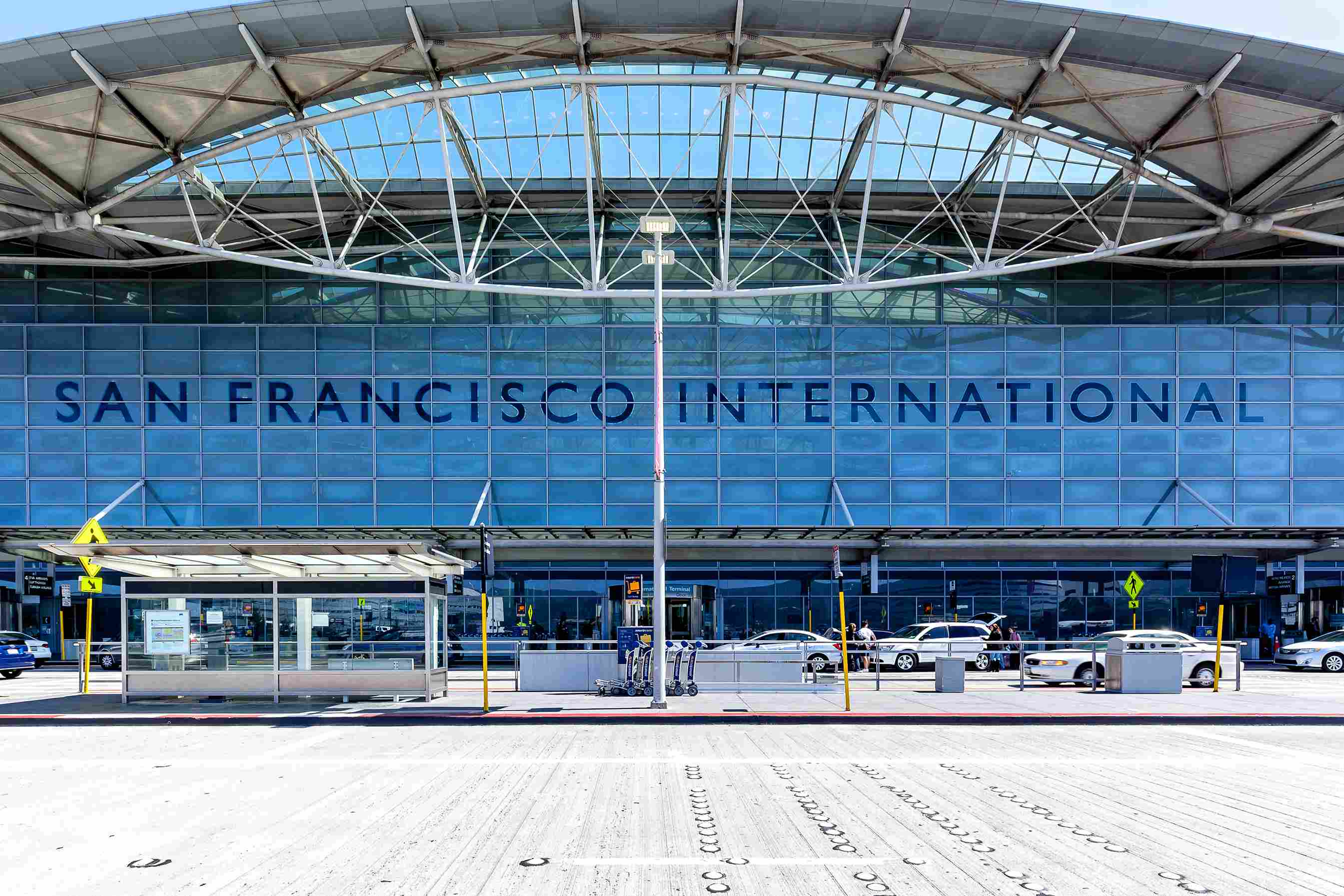
Jet Lag Survival Guide: How to Adjust to the Time Difference
Jet lag, the bane of every traveler's existence, can turn an exciting trip into a groggy and disorienting experience. Crossing multiple time zones can wreak havoc on your body's internal clock, leading to sleep disturbances, fatigue, and a general feeling of malaise. However, fear not, as there are strategies and tips to help you combat jet lag and make the most of your journey. In this comprehensive guide, we'll explore the causes of jet lag, its symptoms, and provide you with a robust survival guide to help you adjust to the time difference effectively. Jet lag is the result of a misalignment between your body's internal clock, known as the circadian rhythm, and the external environment's time zone. When you travel quickly across multiple time zones, your body struggles to adapt to the new schedule, causing a range of symptoms. The key factors contributing to jet lag include: Rapid Time Zone Changes: The more time zones you cross, the worse your jet lag is likely to be. Your body needs time to adjust to the new schedule, and the more you disrupt your regular circadian rhythm, the more severe the jet lag can be. Daylight Exposure: Exposure to natural light is a crucial factor in resetting your body clock. Changes in daylight patterns can confuse your body's internal clock, making it harder to adjust to the new time zone. Cabin Pressure and Humidity: The dry and low-humidity environment inside an airplane cabin can also contribute to jet lag symptoms. Dehydration and altered air pressure can affect your sleep patterns and overall comfort. Jet Lag Symptoms Jet lag can take a toll on your body and mind, and its symptoms can vary in intensity from person to person. Understanding the common signs of jet lag can help you identify and address them effectively. Here are the key symptoms of jet lag: 1. Fatigue and Exhaustion: Jet lag's most prevalent symptom is an overwhelming sense of tiredness. You might feel as though you've been hit by a wave of exhaustion, making it challenging to stay awake or maintain focus. This profound fatigue can affect your ability to enjoy your trip or be productive, especially if you're on a business journey. 2. Sleep Disturbances: Jet lag often wreaks havoc on your sleep patterns. You might experience difficulty falling asleep, known as insomnia, or have trouble staying asleep, leading to fragmented and restless nights. Additionally, early morning awakenings are a common occurrence, causing you to wake up before you're fully rested. 3. Gastrointestinal Issues: Your digestive system can be significantly impacted by jet lag. The disruption to your body's internal clock can lead to a range of gastrointestinal problems. Nausea, indigestion, and an upset stomach are common symptoms. Furthermore, you might experience constipation or diarrhea due to the digestive turmoil caused by the time difference. 4. Mood Swings: The emotional toll of jet lag is not to be underestimated. As your circadian rhythm is disrupted, it can lead to mood swings, irritability, anxiety, and even mild depression. The inability to regulate your emotional responses can make the adjustment to a new time zone even more challenging. Jet Lag Survival Guide Jet lag, the pesky side effect of long-haul travel, can leave you feeling out of sync and weary. To ensure you make the most of your journey, it's essential to have a Jet Lag Survival Guide at your disposal. This guide will help you overcome jet lag's adverse effects and adjust seamlessly to the time difference. Let's break it down step by step: 1. Pre-trip Preparation Before you even set foot on the plane, there are measures you can take to minimize the impact of jet lag. Gradually Adjust Your Schedule: If your itinerary allows, begin gradually adjusting your daily routine a few days before your trip. Shift your sleeping and eating times closer to those of your destination's time zone. This proactive approach can make the transition smoother and reduce the shock your body experiences upon arrival. Stay Hydrated: Proper hydration is a key element in combatting jet lag. In the days leading up to your flight and during your journey, make a conscious effort to drink plenty of water. The dry cabin air can dehydrate you, so staying well-hydrated is crucial. Avoid Caffeine and Alcohol: Both caffeine and alcohol can interfere with your sleep patterns. Limit their consumption, especially during your flight, as they can exacerbate jet lag symptoms. Opt for water or herbal teas instead. 2. During the Flight While you're in the air, take advantage of the following strategies to mitigate the impact of jet lag: Adjust Your Watch: As soon as you board the plane, set your watch, phone, or other devices to the time zone of your destination. This simple mental adjustment can help you get into the right mindset and start thinking in terms of your new schedule. Stay Active: Being confined to a cramped seat for long hours can lead to stiffness and discomfort. Combat this by taking short walks around the cabin, doing in-seat exercises, and stretching regularly. These activities promote blood circulation and reduce the risk of deep vein thrombosis. Choose Your Seat Wisely: If you have the flexibility to select your seat, consider opting for an aisle seat. It's not only more comfortable but also makes it easier for you to get up, stretch, and move around without disturbing your fellow passengers. 3. After Arrival Upon reaching your destination, it's time to put your jet lag survival plan into action: Synchronize with Local Time: The moment you arrive, adjust your life to the local time zone. This means immediately adopting the schedule of your new destination, including meal times and bedtime. This proactive approach helps your body adapt more quickly to the local time. Exposure to Natural Light: Spend time outdoors during daylight hours. Natural light is a powerful tool for resetting your circadian rhythm. If you arrive in the evening, try to avoid excessive exposure to artificial light, which can disrupt your body's ability to adjust. Nap Smartly: If you're feeling incredibly fatigued upon arrival, it's okay to take a short nap. However, keep it brief (20-30 minutes) to avoid falling into a deep sleep, which can make it more challenging to adjust. This power nap can provide a quick energy boost without compromising your ability to sleep later. Stay Hydrated and Eat Light: On your first day in the new time zone, focus on maintaining good hydration and selecting light, easy-to-digest meals. This approach helps minimize potential gastrointestinal discomfort and ensures that your body is well-prepared for the time adjustment. 4. Give It Time Finally, be patient with yourself. Adjusting to a new time zone takes time, and everyone's adaptability is different. Don't be too hard on yourself if it takes several days to fully feel back to normal. With these strategies in your jet lag survival toolkit, you can make the most of your travels, no matter how many time zones you cross. Bon voyage! Jet lag is an almost inevitable part of long-distance travel, but with careful planning and the right strategies, you can significantly reduce its impact on your trip. Preparing your body before you leave, maintaining healthy habits during the flight, and acclimating to the new time zone upon arrival are essential steps in your jet lag survival guide. Remember, the key is to be patient with yourself and give your body the time it needs to adapt. Bon voyage! Q1: What is jet lag? A1: Jet lag is a condition that occurs when there is a misalignment between your body's internal clock (circadian rhythm) and the time zone of your destination, typically resulting from rapid travel across multiple time zones. Q2: What causes jet lag? A2: Jet lag is primarily caused by rapid time zone changes, disruption of daylight exposure, and the effects of cabin pressure and humidity during air travel. Q3: What are the common symptoms of jet lag? A3: The common symptoms of jet lag include fatigue and exhaustion, sleep disturbances (insomnia or fragmented sleep), gastrointestinal issues (nausea, indigestion), and mood swings (irritability, anxiety). Q4: How can I prepare to minimize jet lag before my trip? A4: Gradually adjust your schedule to match your destination's time zone, stay hydrated, and avoid excessive caffeine and alcohol consumption. These steps can help minimize the impact of jet lag. Q5: What can I do during the flight to mitigate jet lag? A5: Adjust your watch to the destination's time zone, stay active with in-seat exercises and short walks, and choose an aisle seat if possible to make movement easier. Q6: What should I do after reaching my destination to combat jet lag? A6: Synchronize with local time immediately, spend time outdoors during daylight hours to reset your circadian rhythm, take short power naps if needed, and focus on staying hydrated and eating light on your first day in the new time zone. Q7: How long does it take to overcome jet lag? A7: The time it takes to overcome jet lag varies for each individual. Being patient with yourself is crucial, and it may take several days to fully adjust to the new time zone. Q8: Can I take medications to prevent or alleviate jet lag? A8: While there are medications available, it's advisable to consult with a healthcare professional before taking any. Implementing natural strategies like adjusting your schedule and staying hydrated is often recommended. Q9: Are there specific tips for business travelers dealing with jet lag? A9: Business travelers can benefit from pre-trip preparation, including adjusting schedules gradually, staying hydrated, and maintaining healthy habits during and after the flight. Additionally, syncing with local time upon arrival is crucial for a quick adjustment. Q10: What if I still experience jet lag despite following the survival guide? A10: If jet lag persists, reassess your strategies and consider seeking advice from a healthcare professional. It's essential to prioritize self-care and make adjustments as needed for your well-being during and after travel.Introduction
Understanding Jet Lag
What Causes Jet Lag?Conclusion
FAQs on Jet Lag Survival Guide









